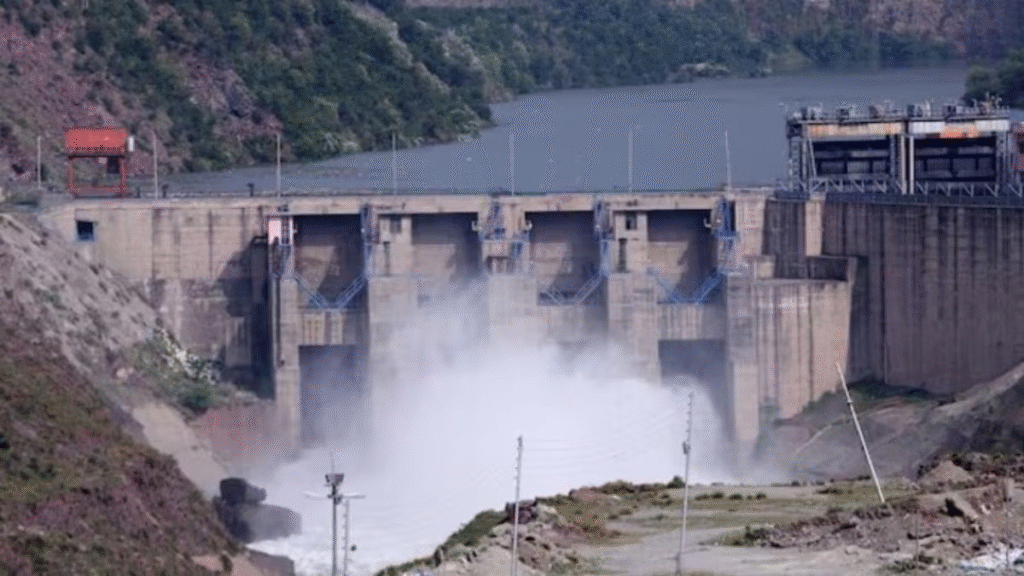Pakistan’s bad days have begun, seeing itself surrounded by the world, it is struggling over the Indus agreement, India has a chance

a
Bad days have begun for Pakistan. The way Pakistan’s army and leaders were boasting before and after Operation Sindoor, launched by India in response to the Pahalgam terrorist attack, they have now realized how much trouble their country is in. First they were badly beaten in the military conflict and now they have come to the point of pleading in view of the impending crisis of water. On the other hand, India has started making its diplomacy even more lethal to surround the enemy. For this, India has many opportunities right now and it will be very difficult for Pakistan, which has been exposed badly in the world, to come out of this diplomatic labyrinth.
Pakistan will be exposed among the powerful countries of the world
Prime Minister Narendra Modi is going to Canada on his first foreign trip after Operation Sindoor. There he has been invited for the G7 summit meeting, of which India is not even a member. Although he has been invited to this conference since 2019, this time it is important because India is in a different mode since the Pahalgam attack. The G7 includes countries like the US, Britain, Canada, France, Italy, Japan and Germany. Not only this, the countries of the European Union also participate in it. It is likely that on this occasion PM Modi will have a direct talk with the top leaders of all the countries included in the G7, including US President Donald Trump, and Operation Sindoor and the Pahalgam terrorist attack will be a priority in this. PM Modi has his own influence on these global leaders. Therefore, it is not going to be easy for anyone to support Pakistan here.
Terrorism and Pahalgam attack became an issue at the BRICS Parliamentary Forum
Meanwhile, at the same time, the issue of terrorism has been raised at the 11th BRICS Parliamentary Forum in Brasilia, the capital of Brazil, in which India’s stand has been supported. All 10 member countries have condemned the terrorist attack in Pahalgam in a joint declaration. They have promised to work together to fight all forms of terrorism. Lok Sabha Speaker Om Birla has led the Indian delegation here. He has talked about stopping financial aid to terrorism, sharing intelligence, preventing misuse of new technologies and increasing cooperation in investigation. He said that strict action should be taken against terrorism. This year’s forum was attended by the expanded members of BRICS, which include India, Brazil, Russia, China, South Africa, Iran, UAE, Egypt, Ethiopia and Indonesia. This is a big setback for Pakistan, because its friend China is also a part of that forum, which seems to be trying to distance Pakistan at least among the countries of the world in the name of fight against terrorism.
Resolution against terror taken in India-Central Asia Dialogue
Similarly, terrorism has also been discussed in the fourth India Central Asia Dialogue. In this too, both sides said that the culprits of terrorist attacks must be punished. Those who promote terrorism should also be brought to justice. Here too, the attack in Pahalgam was also strongly condemned. A joint statement said that India and Central Asia will fight against terrorism together. Terrorism is a threat to humanity. We have to defeat it together. Those who promote terrorism, make it happen and give them financial support will be brought to justice. The rules of the United Nations Security Council (UNSC), the Global Counter-Terrorism Strategy and the standards of FATF should be fully followed. After this dialogue, External Affairs Minister S Jaishankar and the foreign ministers of Uzbekistan, Tajikistan, Kazakhstan, Kyrgyz Republic and Turkmenistan also met Prime Minister Narendra Modi. Later, Prime Minister Modi talked about the fight against terrorism by both sides together on the eve.
Pakistan has already started pleading for water from India
Pakistan, which was trapped in India’s diplomatic maze on terrorism, has now understood the ground situation. India has stopped the Indus Waters Treaty after the Pahalgam attack, so its restlessness is worth seeing. It has written at least four letters to India to reconsider its decision. These letters have been sent by the Pakistani Water Resources Ministry to India’s Jal Shakti Ministry. However, India has already made it clear to Pakistan that until it stops supporting terrorism, the Indus Water Treaty will remain in jeopardy. Pakistan’s problem is that the Kharif season is starting and due to the halt in the Indus Water Treaty, it is slowly becoming breathless. This concern has been raised in the Pakistani Parliament itself.




